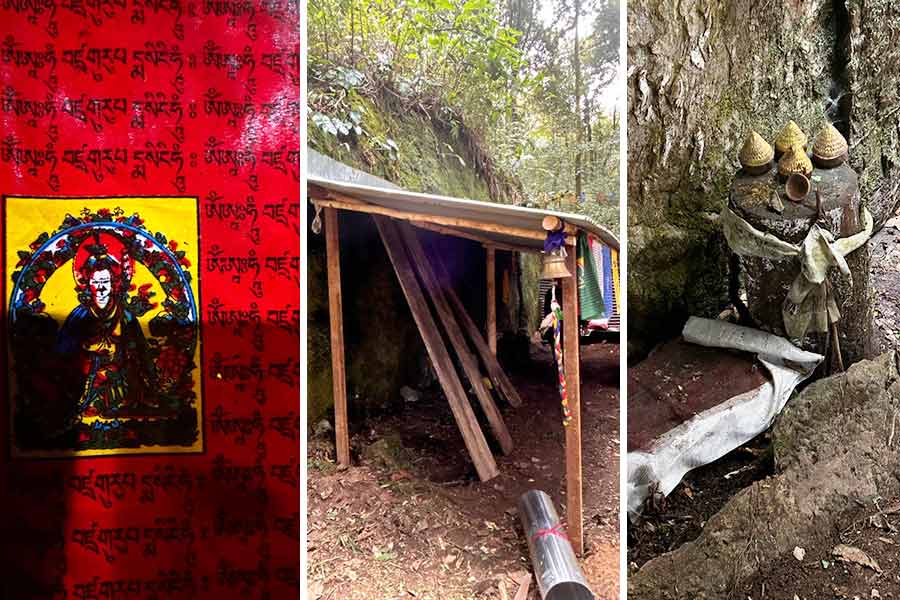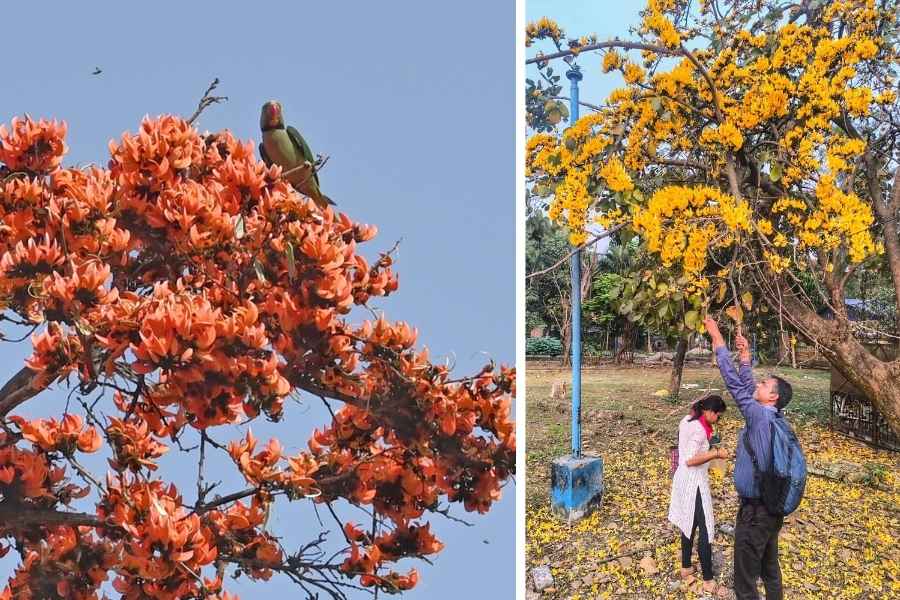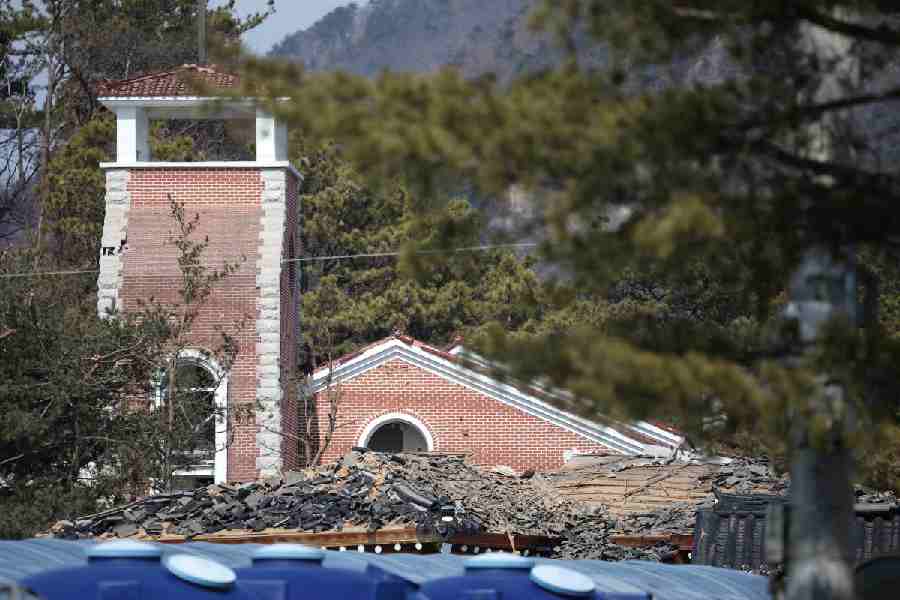 Friday, 07 March 2025
Friday, 07 March 2025
 Friday, 07 March 2025
Friday, 07 March 2025
Bengal chief minister Mamata Banerjee on Saturday extended a branch but it was unclear if the protesting junior doctors saw it as an olive one or filled with thorns.
Mamata’s discussion with the protesting doctors – six of whom are on hunger strike in Calcutta’s Esplanade as of Saturday, day 15 of the protest – happened over a mobile phone held by the state chief secretary Manoj Pant.
Also present were home secretary Nandini Chakravarty and deputy commissioner of police (central) Indira Mukhopadhyay, some members of the civil society who have joined the hunger strike in solidarity, members of the media, and onlookers in the heart of Calcutta in the midst of the festive season.
“I can give you time on Monday at 5 'o'clock at Nabanna. But you cannot make me wait for hours. The meeting cannot go on and on,” Mamata was heard saying over the phone. “End the hunger strike and return to your duties.”
The shaking of heads indicated the junior doctors, despite being on hunger strike since October 5 still have some fight left in them despite the repeated attacks on them from the Trinamul leaders.
“When our demands are met our hunger strike will end,” said Dr Arnab Mukherjee, one of the junior doctors on hunger strike, who took part in the telephonic conversation with the chief minister.
Mamata had to reach out to the junior doctors — who have been waging a battle against the state government, the ruling party leaders and the police, since a compatriot of theirs was raped and murdered inside a state-run hospital not in any district town or rural hospital but the 138-year-old RG Kar Medical College and Hospital in Bengal’s capital.
On Friday, following a meeting between the junior and senior doctors, an ultimatum was served to the government: Meet the 10-point demands by Monday or face a complete strike in the state-run healthcare sector from Tuesday.
Both the Mamata Banerjee government and the medical community in Bengal are walking on a double-edged sword. Who would be seen bleeding more depends from whose perspective the current movement is being looked at.
Since August 9, when the doctor’s body was found at RG Kar, the junior doctors have been in an unequal war, supported by their seniors and members from different sections of the society that has galvanised into a mass movement never seen before in the 13 years that Mamata has been in power.
The junior doctors have spoken out not just against the most horrific crime committed in recent history but also exposed the systemic corruption amongst a section of the health administration. The charges of corruption were not new. Even leaders from the ruling party had flagged these issues but it took the rape and murder of a postgraduate trainee doctor – from a suburban locality, born to working-class parents – for the authorities to finally look at what was written on the wall.
Days after the brutal crime, the chief minister still would not read it and rather had the former principal of the RG Kar Medical College and Hospital, under whose watch the corruption and the rape and murder took place, transferred to a different teaching hospital in the city.
On Saturday morning, the Trinamul leader Kunal Ghosh had urged the junior doctors to end the strike. In the nearly three months since a government medical college became a crime scene, the Trinamul has been trying to wedge a divide between the junior doctors, targeted individual senior doctors, and hinted at conspiracy by the corporate sector hospitals to keep the junior doctors on strike, though barring a few most of them have resumed their duties.
Even when they were on cease-work, the senior doctors bore the burden of treating patients.
“Private hospitals have seen 40 per cent revenue growth. At the government hospitals, we treat free of cost … emergency cases are pending…. As your didi I am speaking. I don’t have any difference of opinion. I have accepted everything. Please return to work,” said Mamata over the phone as she assured the junior doctors that the government was working on meeting their demands.
Before the three-member bench of the Supreme Court led by the Chief Justice of India, the state health secretary Narayan Swarup Nigam had made the same claim, though the CJI expressed unhappiness with the slow pace of work.
“Without a written order we cannot end hunger strike,” one of the junior doctors on hunger strike was heard telling the chief minister.
Mamata heard the demands point by point. She assured that elections to the medical college unions will take place – one of the 10 demands – but insisted she would need around four months to complete the process.
When Mukherjee, the junior doctor on hunger strike, spoke about the pending demand of removal of Nigam, Mamata countered: “You will decide which officer will stay, who will go? If the probe is on, have trust in it.”
Two of the junior doctors on hunger strike who spoke with the chief minister over the phone – Dr Rumelika Kumar and Dr Arnab Mukherjee – complained that they were feeling unwell while talking to the chief minister, who insisted on listening to the demands and offering quick-fix solutions then and there .
“Detailed discussion not possible in front of media over phone,” Rumelika was heard pleading over the phone as she took a seat, while Mamata's emissaries, the three public servants, looked on.







